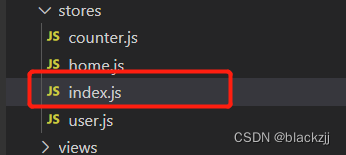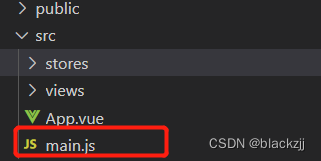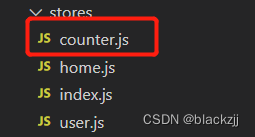什么是Pinia呢?
Pina开始于大概2019,是一个状态管理的库,用于跨组件、页面进行状态共享(这和Vuex、Redux一样),用起来像组合式API(Composition API)
Pinia和Vuex的区别
- PInia的最初是为了探索Vuex的下一次迭代会是什么样子,结合了Vuex核心团队讨论中的许多想法;
- 最终,团队意识到Pinia已经实现了Vuex5中大部分内容,所以最终决定用Pinia来替代Vuex;
- 与Vuex相比,Pinia提供了一个更简单的API,具有更少的仪式,提供了Composition-API风格的API
- 更重要的是,与TypeScript一起使用时具有可靠的类型推断支持
与Vuex相比,Pinia很多的优势:
比如mutations不再存在:
- mutations最初是为devtools集成,但这不在是问题
- 他们经常认为是非常冗长
更友好的TpeScipt支持,Vuex之前对Ts的支持很不友好
不在有modules的嵌套结构
- 你可以灵活使用每一个store,他们是通过扁平化的方式来相互使用的;
不在有命名空间的概念,不在需要记住他们的复杂关系
如何使用Pinia
1、安装Pinia
- yarn add pinia
- npm install pinia
2、创建pinia文件
store文件里index.js
import { createPinia } from 'pinia'
const pinia = createPinia()
export default pinia

3、main.js导入并引用
import { createApp } from 'vue'
import App from './App.vue'
import pinia from './stores'
createApp(App).use(pinia).mount('#app')

4、pinia的状态管理,不同状态可以区分不同文件

//定义关于counter的store
import { defineStore } from ‘pinia’
//defineStore 是返回一个函数 函数命名最好有use前缀,根据函数来进行下一步操作
const useCounter = defineStore('counter',{
state: () => {
count:99
}
})
export default useCounter
5、调用pinia,获取pinia状态值,导入Counter.js,获取Counter.js里面state.count
<template>
<div class="home">
<h2>Home View</h2>
<h2>count: {{ counterStore.count }}</h2>
</div>
</template>
<script setup>
import useCounter from '@/stores/counter';
const counterStore = useCounter()
</script>
<style scoped>
</style>
注意:pinia解构出来的state也是可以调用,但会失去响应式,需要toRef或者pinia自带storeToRefs
<template>
<div class="home">
<h2>Home View</h2>
<h2>count: {{ counterStore.count }}</h2>
<h2>count: {{ count }}</h2>
<button @click="incrementCount">count+1</button>
</div>
</template>
<script setup>
import { toRefs } from 'vue'
import { storeToRefs } from 'pinia'
import useCounter from '@/stores/counter';
const counterStore = useCounter()
// const { count } = toRefs(counterStore)
const { count } = storeToRefs(counterStore)
function incrementCount() {
counterStore.count++
}
</script>
<style scoped>
</style>
store的核心部分:state,getter,action
(相当于:data、computed、methods)
认识和定义State
state是store的核心部分,因为store是用来帮助我们管理状态
操作State
-
读取和写入state:
默认情况下,可以通过store实例访问状态来直接读取和写入状态;
``` const counterStore = useCounter() counterStore.counter++ counterStore.name = 'coderWhy' ``` -
重置State:
可以调用store上的$reset()方法将状态重置到其初始值const counterStore = useCounter() conterStore.$reset() -
改变State
-
除了直接用store.counter++修改store,还可以调用$patch
-
它允许您使用部分‘state’对象同时应该多个修改
const counterStore = useCounter() counterStore.$patch({ counter:100, name:'kobe' }) -
-
替换State
可以通过将其$state属性设置为新对象替换Store的整个状态conterStore.$state = { counter:1, name:'why' }
认识和定义Getters
-
Getters相当于Store的计算属性:
- 它们可用defineStore()中的getters属性定义
- getters中可以定义接受一个state作为参数的函数
expoer const useCounter = defineStore('counter',{ state: () => { counter:100, firstname:'kobe' }, getters:{ doubleCounter(state){ return state.counter *2 } } }) -
访问Store里getters方法
-
访问当前store的getters:
const counterSotre = useCounter() console.log(counterStore.doublCounter) -
我们可以使用this来访问当前的store实例中getters
expoer const useCounter = defineStore('counter',{ state: () => { counter:100, firstname:'kobe' }, getters:{ doubleCounter(state){ return state.counter *2 } doubleCounterAdd(){ //this指向store return this.doubleCounter +1 } } }) -
访问其它store的getters
import useUser from ./user const userStore = useUser() expoer const useCounter = defineStore('counter',{ state: () => { counter:100, firstname:'kobe' }, getters:{ //调用其它Store doubleCounterUser(){ return this.doubleCounter + userStore.umu } } }) -
通过getters可以返回一个函数,可以传参数
expoer const useCounter = defineStore('counter',{ state: () => { counter:100, firstname:'kobe' }, getters:{ //调用其它Store doubleCounter(state){ return function (is) { return state.id + id } } } })const StoreConter = useCounter(); //传参 StoreCounter.doublCounter(111)
-
认识和定义Actions
-
Actions 相当于组件中的methods,可以使用defineStore()中的actions属性定义
expoer const useCounter = defineStore('counter',{ state: () => { counter:100, firstname:'kobe' }, getters:{ //调用其它Store doubleCounter(state){ return function (is) { return state.id + id } } }, actions:{ increment(){ this.counter++ }, //传参 incrementnum(num){ this。counter += num } } })和getters一样,在action中可以通过this访问整个store实例:文章来源:https://uudwc.com/A/pZAP
function increment(){ //调用 counterStore.increment() } function incrementnum(){ counterStore.increment(10) }
Actions执行异步操作:
-
Actions中是支持异步操作的,并且我们可以编写异步函数,在函数中使用await文章来源地址https://uudwc.com/A/pZAP
actions:{ async fetchHome(){ //???请求 const res = await fetch('?????') const data = await res.json() console.log('data',data) return data } }cosnt counterStore = useCounter counterStore.fetchHome().then(res => { console.log(res) })
